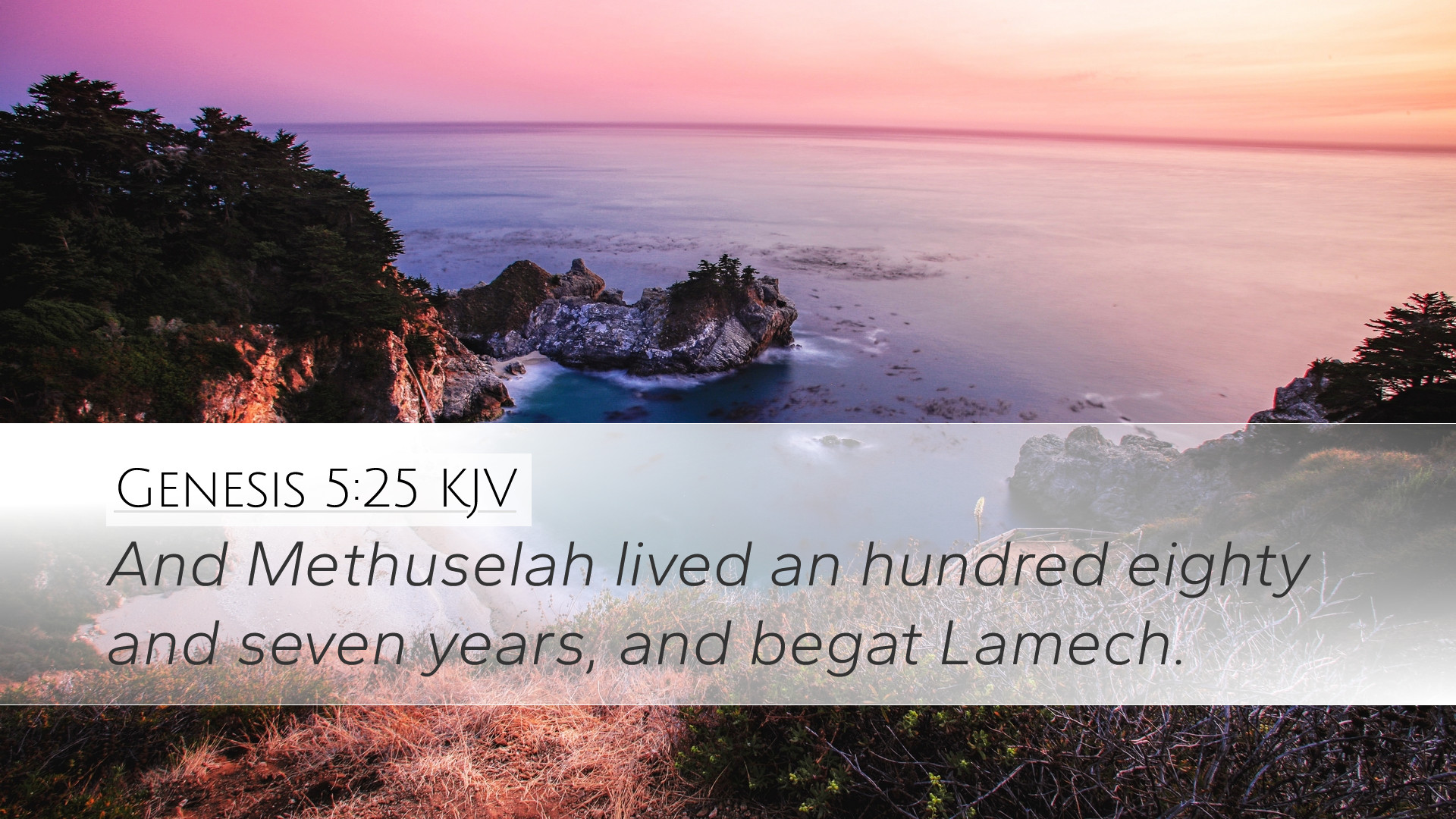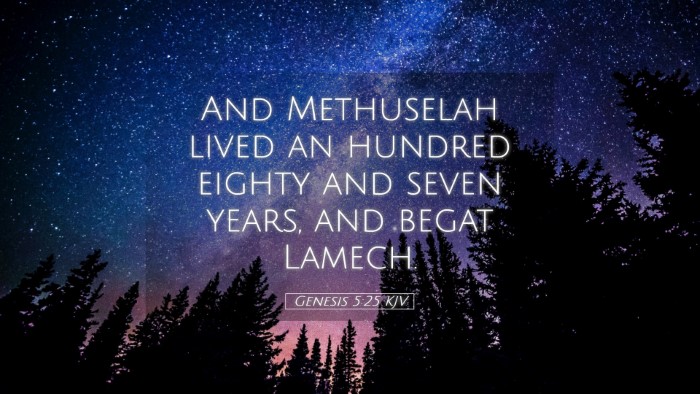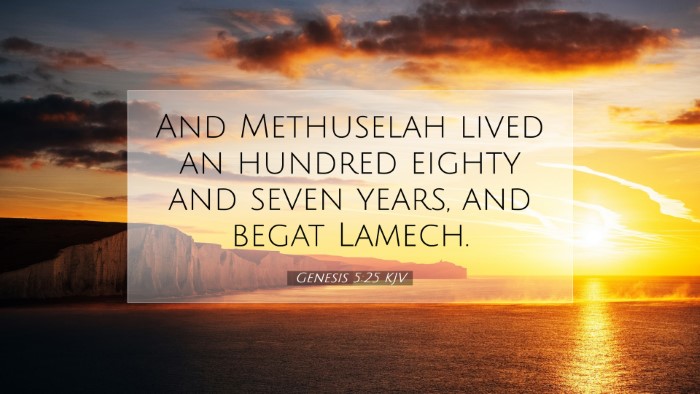Commentary on Genesis 5:25
Genesis 5:25 states: "And Methuselah lived an hundred eighty and seven years, and begat Lamech."
This verse is part of the genealogical records in the Book of Genesis, which provides foundational information about the early generations of humanity. Methuselah, known for his long life, is a key figure within this lineage. His name is often associated with themes of longevity and divine grace, and this commentary aims to explore the significance of Methuselah both within and beyond the context of his lineage.
Historical Context
The genealogies in Genesis serve a dual purpose: they chronicle the descendants of Adam and illustrate God’s plan of redemption throughout history. Methuselah is presented as a pivotal link between the antediluvian era and the postdiluvian world. His extended lifespan—often cited as the longest in the Bible at 969 years—offers a profound reflection on both human history and divine patience.
Insights from Matthew Henry
Matthew Henry observes that Methuselah's life and the timing of his death are of significant theological importance. His name means "when he dies, it shall be sent," suggesting a prophetic connotation regarding the impending flood. Henry suggests that Methuselah's longevity serves as a testament to God's mercy, allowing ample time for humanity to repent before the judgment of the flood arrived symbolized by Methuselah's death. His father, Enoch, who "walked with God," produced a lineage that carried both warning and hope for future generations.
Albert Barnes' Commentary
Albert Barnes focuses on Methuselah’s role in the genealogical succession leading to Lamech and ultimately Noah. Barnes emphasizes the importance of Lamech's birth as it precedes the narrative of the flood and sets the stage for the renewed covenant with Noah. He draws attention to the fact that Methuselah's life and the genealogy encapsulate the transition from a world of increasing wickedness to one of divine judgment and then salvation through Noah. The lineage thus serves as a bridge of continuity in God’s redemptive plan.
Adam Clarke's Contribution
Adam Clarke adds depth by analyzing the meaning of Methuselah's name in the context of biblical prophecy. He points out that the year of Methuselah’s death coincides with the beginning of the flood, which brings a stark reminder that his life symbolically represented the time of God's grace. Clarke interprets the ages of Methuselah and his offspring as significant, where each age might reveal both the long-suffering nature of God and the need for humanity to seek repentance. Methuselah, therefore, symbolizes endurance amid moral decay, standing as a figure urging the pursuits of righteousness.
Theology of Longevity
-
Longevity as Divine Purpose: The extended lifespan of Methuselah can be viewed as an invitation for people to evaluate their lives in the light of God’s patience, encouraging deep reflection on their spiritual state and actions.
-
Symbol of Mercy: Methuselah’s existence portrays God’s mercy in delaying judgment, which calls believers to extend grace to others, recognizing that everyone is given a chance to repent.
-
Focus on Consequences: As Methuselah lived through increasingly corrupt times, his life serves as a powerful reminder of the consequences of sin and the inevitability of divine judgment, which culminated in the flood.
Applications for Modern Believers
For pastors, students, theologians, and scholars, Genesis 5:25 serves as a rich tapestry woven with lessons applicable today. The legacy left by Methuselah challenges Christians to examine:
-
How do we respond to the grace and patience of God in our lives?
-
What legacy are we creating for future generations in terms of faith and righteousness?
-
In what ways can we embody the perseverance of Methuselah in our contemporary context amid moral challenges?
-
How do we bear witness to God’s grace and the coming judgment in a world that mirrors the days of Methuselah?
Conclusion
Genesis 5:25, while a simple genealogical remark, encapsulates profound theological truths about God's nature, human sinfulness, and the continuity of divine purpose. Methuselah's life, particularly as it relates to the events surrounding Noah and the flood, provides a compelling study in faithfulness, patience, and the need for vigilance in our devotion to God’s commands. As followers of Christ, the challenge remains to examine ourselves against the lessons threaded through the biblical narrative, taking heed of Methuselah’s legacy as a beacon urging us toward righteous living and unwavering faith in God’s promises.


